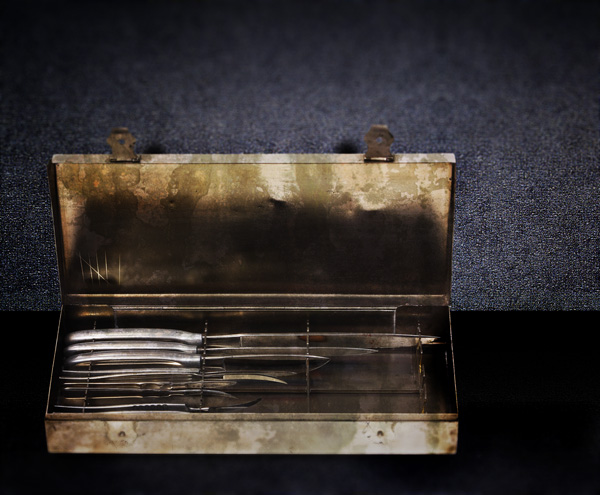Serial Killers: Fiddleblack #6
November 15, 2012

The characters in Fiddleblack #6, our first all-fiction issue, are perhaps in need of Schema Therapy. Motives are not important, for this is not a crime journal and we have no moralist position on any character’s actions. Rather, their minds are our focus.
With each story, we’re forced to wonder outside of the fiction, if the work affects us at all, as to whether these characters and their actions (their relations to violence, common trajectories, their endpoint discoveries) are in fact legitimate modes of behavior. When we solicited work for Fiddleblack #6, there was a call for “awful brutalists” attempting to explore ideas of self past normal human limits. Do these characters find realizations at their endpoints, at the literal endpoints of others, or are these yarns wrapped in pretension?
Schema Therapy helps maladapted patients avoid impulse and escape fear-driven lifestyles. Writing as an active killer, in the case of Joe Ricker’s “Moon Dance,” or as a serial killer in a kind of infancy, as in John McManus’s “Malabar Gant,” we see maladaptation at two poles. In the case of Nicholas Rombes’s “The Ones,” we see a much different cognitive shift.
This is our honest work, and it feels warm-fisted into a strange place. And for now it’s not an impulse. We’re reading these minds because we want to get closer.